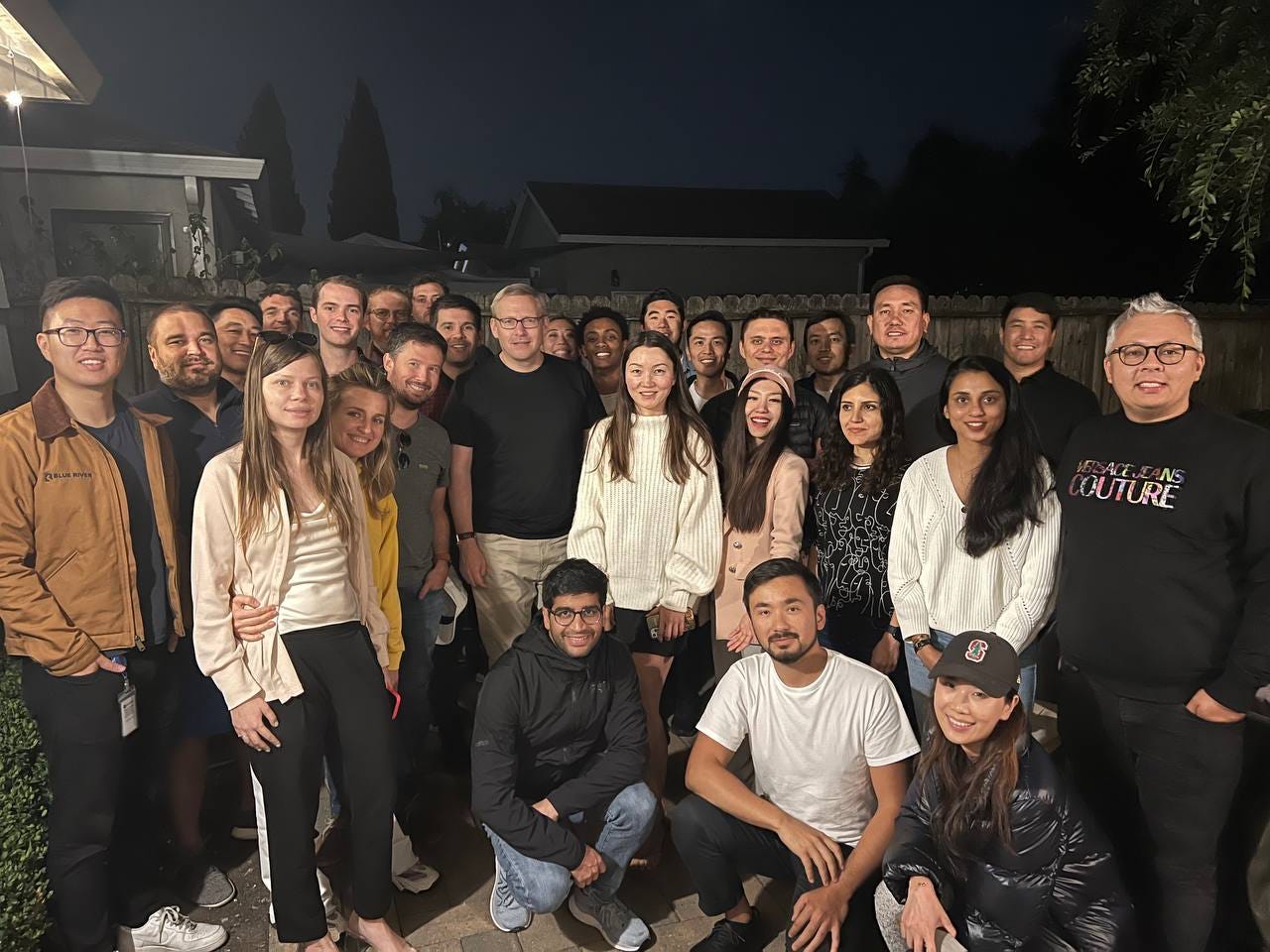Guido Appenzeller, a16z, ex-CTO @Intel & @VMware
Generative Horizons
Chyngyz Dzhumanazarov and I recently hosted an insightful dinner with Guido Appenzeller as part of SV Icons. Guido is a former CTO of Intel Corporation and VMware, and currently a special advisor at Andreessen Horowitz. Guido shared his perspectives on the current state of AI and where things are heading. Here are some of the key takeaways from the dinner:
1. Adoption of AI is currently happening bottoms-up, driven by startups and business units looking to solve problems pragmatically. Enterprise adoption is still slow as they analyze legal and regulatory implications.
2. The GPU shortage is a major challenge, with demand far outpacing supply. Startups need to lock up capacity they need to scale their services. Data center infrastructure will need to evolve to support the power needs of AI workloads.
3. Interfaces and user experiences still matter, even with conversational AI. Brands can differentiate through multimodal interactions, not just text conversations.
4. Code and programming languages are optimized for specifying programs unambiguously. Natural language interfaces likely can't fully replace them for developing software.
5. There is still a lot of progress to be made with conversational AI agents before they are truly useful in practice. We are in the early 2000s equivalent stage for agents compared to general AI.
6. For 99% of organizations, in-context learning with vector databases and prompts is preferable today, for extremely sophisticated organizations with large sets of data that may not be true.
7. Applications will likely combine multiple ML models together, like Stable Diffusion plus control nets and fine-tuned models. This is more complex than just a single model.
8. Microservices remain appropriate for backend architecture, though frontends are consolidating more functionality through services.
9. Combining generative AI with simulation and creative works could lead to new forms of interactive experiences. But steering model output remains challenging.
10. As AI technologies mature, open-source models may become the benchmark against which all others are compared. This could accelerate adoption by reducing barriers to experimentation.
Guido also mentioned that the full implications of AI's democratization are still unclear, but it promises to be among the most disruptive general-purpose technologies we've seen, therefore understanding the landscape and implications will be key to navigating it successfully.
Thank you Guido Appenzeller for sharing your insights and helping us navigate the space!
Organizers: Chyngyz Dzhumanazarov and Aizada Marat


Hi there, is there a way to join your event next time?